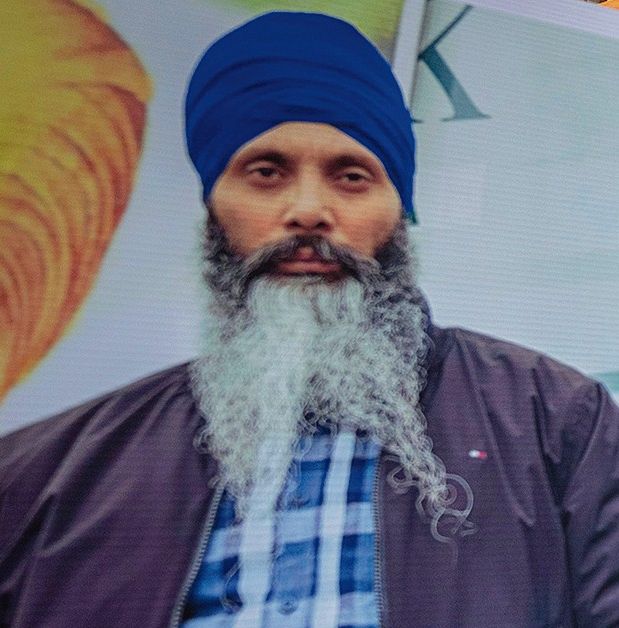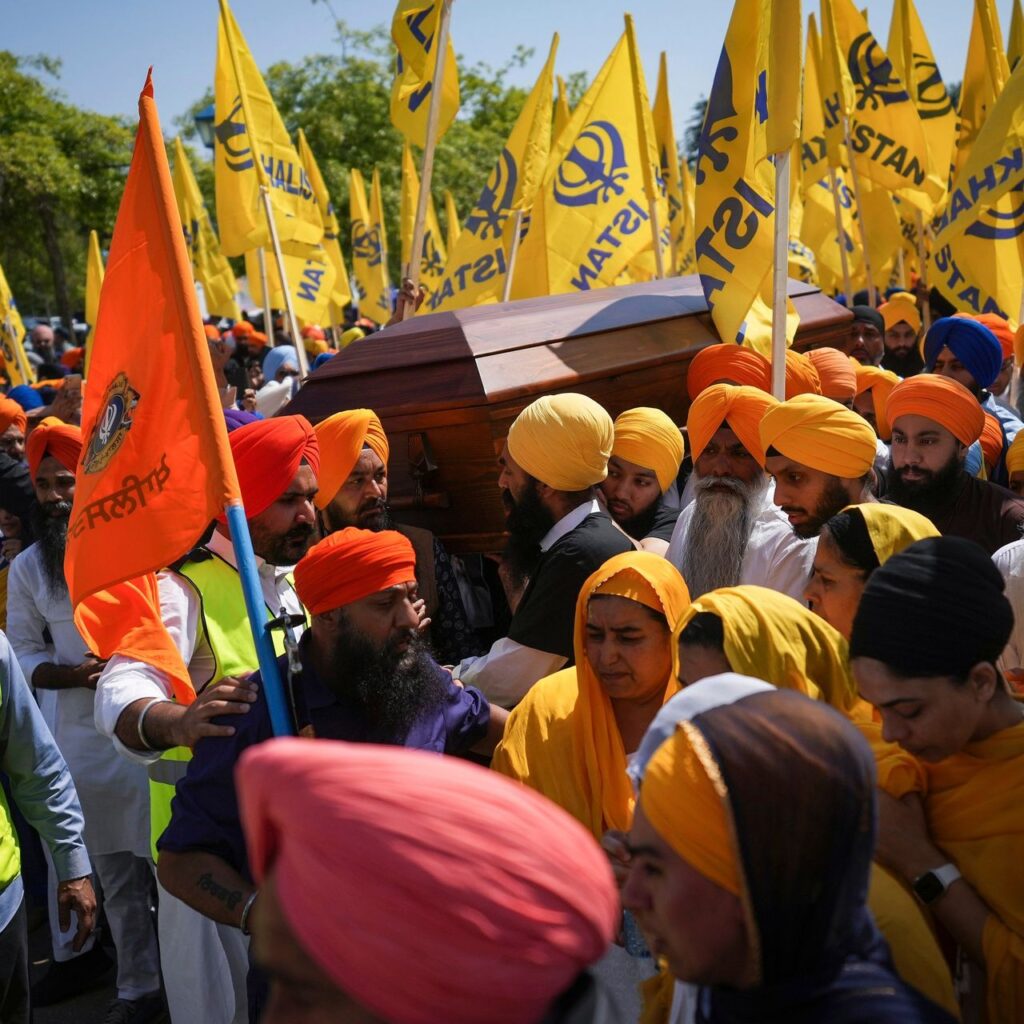In a startling revelation, a video obtained by The Washington Post sheds new light on the assassination of Khalistani activist Hardeep Singh Nijjar in Canada’s British Columbia on June 18. Contrary to initial reports, the video suggests a larger and more complex operation involving at least six individuals and two getaway cars. This shocking development has escalated diplomatic tensions, bringing Canada and India into a spotlight of allegations and counter-allegations.

The video captured the chilling moment when a white sedan intercepted Nijjar’s pickup truck, and two masked individuals fired over 50 shots at him, ultimately leading to his tragic death. Witnesses described the assailants as average-height men with beards and “pagdis” visible beneath their hoodies. The attackers swiftly fled the scene in a second vehicle, a 2008 Toyota Camry, where three other individuals were waiting.
Revelatory Video Exposes Complex Assassination Operation
Disturbingly, it took the police between 12 to 20 minutes to arrive at the scene, sparking a jurisdictional dispute between local and federal law enforcement. Moreover, it was reported that it took over a month for the authorities to seek public assistance in identifying a crucial vehicle involved in the crime.
Canadian Prime Minister Justin Trudeau’s recent statement in the Parliament, implying a potential link between Indian government agents and Nijjar’s assassination, has further fueled tensions. Canada took a bold step by expelling an Indian diplomat, suspecting his involvement. This move was based on what Canadian security authorities considered credible intelligence implicating India in the murder.
Diplomatic Tensions Surge Between Canada and India
The alleged involvement of a foreign government in such an act on Canadian soil has raised eyebrows and pointed to the challenge of dealing with state-sponsored actions abroad. Historically, international reactions to state-backed assassinations have revealed a double standard, where actions by certain nations are deemed acceptable while others are condemned.

The accusations against India, a Western ally, have shocked observers, prompting questions about the motives and actions of the current Indian government. This incident could impact India’s standing on the global stage, potentially affecting its relationship with the West.
Global Ramifications: India’s Image and Geopolitical Relations at Stake
India’s aspirations to be a global superpower and its assertiveness in international affairs have been noted, particularly with its aggressive intelligence activities in foreign territories. Pakistan has long accused India of sponsoring terrorism, underscoring the escalating tensions between the two neighboring nations.

The assassination of Hardeep Singh Nijjar and the subsequent allegations have laid bare the delicate balance of international relations. The world will be watching closely as the situation unfolds, anticipating how it may shape India’s role in the emerging world order and its relationship with the Western powers.



